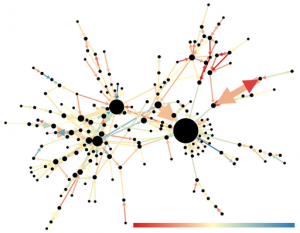Identity discourses through online communities: A study on K-pop and Boys Love fandom
Di Yoong, Critical Social Personality Psychology

This project is a study to understand the discourses and narratives generated by K-pop and BL online users. Through this project, I hope to understand the content of these users as it relates to identity formation (such as identifying gender expression) that is discussed online. In addition, I am interested in the interaction between the online discourses and the offline realities. The decision to look at these fan communities is also largely due to the notion that these communities are often regarded as being “strange, solitary, passive, and obsessive consumers of media content” (Plante, Roberts, Reysen, & Gerbasi, 2014, p. 49). This perspective resulted in limited scholarship on understanding the impact of fandoms and identity discourses, even as more young users are driving the directions of online communities through their consumption, production, and remixing of content (Herrero-Diz, Ramos-Serrano, & Nó, 2016). I am using computational social science (Nelson, 2017) and critical discourse studies methods (van Leeuwen, 2006) to collect and analyze social media data. I also intend to recruit interested participants to explore how identities are negotiated, explored, and constructed within these online communities. This project aims to investigate the relationship between existing identity discourses and the discourses emerging from these online communities. This project will contribute to the understanding of how digital and non-digital lives intertwine and also add meaningful discussions to the experiences of marginalized community participants, such as those who are queer.
More specifically, the study is interested in:
-
- How gender and sexuality is navigated, produced, and consumed in K-pop, and Boys Love (BL) communities?
- How do participants navigate their online space? (e.g. just Twitter or multimodal platforms?)
- What are the discourses of identities that emerge in these online communities across time?
- How do discourses of identity shape these online communities?
- What are the communities’ norms and expectations across time?
- How are communities’ norms and expectations shaped, practiced, and policed?
- How and why do queer fans consume and identify with K-pop and BL content?
- How does the engagement and involvement in these communities challenge and conform to
existing structures of power and oppression?
Image from: Siobhán Grayson, CC BY-SA 4.0 <https://creativecommons.org/licenses/by-sa/4.0>, via Wikimedia Commons